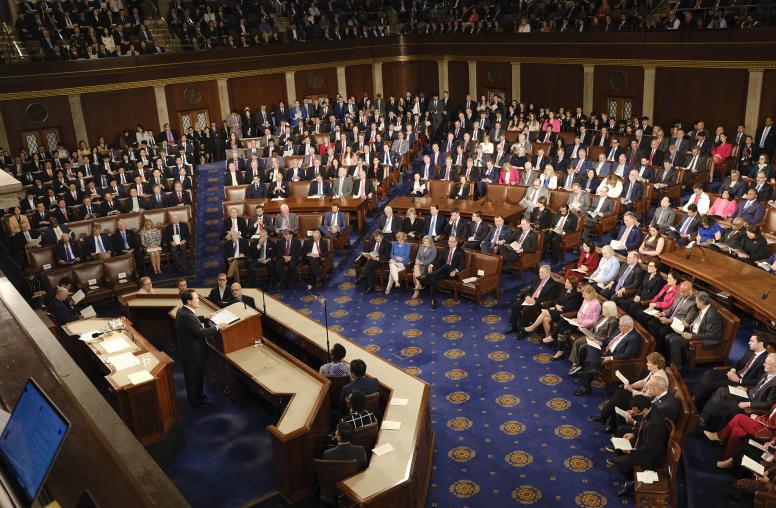Presidents of Ecuador & Peru Share Lessons from Recent Peace Agreement

President Jamil Mahuad Witt of Ecuador
President Jamil Mahuad Witt of Ecuador and President Alberto Fujimori of Peru met with policymakers February 5, 1999 at the U.S. Institute of Peace to discuss lessons learned from the recent successful negotiations between the two countries. Presidents Mahuad and Fujimori signed the comprehensive Peace Accords on October 26, 1998, marking the end of the oldest border dispute in Latin America.
"Our peace agreement is very creative. With assistance from the international community the concept of sovereignty and property were split in Tiwinza allowing us to end our conflict while the pride of both our countries was respected," said Mahuad.
The agreement fully implements the frontier between the two countries by conclusively defining the common land border. At the same time, it sets the basis for future development of relations between both countries through a border integration agreement and a committee for confidence building and security measures.
Tiwinza was the final sticking point between the two nations. Both countries have soldiers buried there. The ground-breaking agreement gives Peru and Ecuador a fixed common border, while Ecuador maintains one-square-kilometer as private property within the borders of Peru.
"The peace treaty clears the way for reconciliation between our countries. There are no losers with this agreement. We now have a base for cooperation and sustainable development," said Fujimori.
As a consequence of the agreement both countries have been able to drastically reduce military expenditures and focus more money on social programs and economic development.
"We are grateful to President Mahuad and President Fujimori for their insights today. The accord not only avoided the prospect of new fighting between the two countries but gave us important lessons and illustrated the advantages of negotiations in which several other countries from the hemisphere played supporting roles. I believe these negotiations should be used as a model for other countries in future conflict negotiations," said Dr. Richard Solomon, president of the U.S. Institute of Peace.
Speakers
- Jamil Mahuad Witt
President of Ecuador - Alberto Fujimori
President of Peru - Richard Solomon
President, U.S. Institute of Peace
Media Inquiries
Please contact Ian Larsen (+1.202.429.3870) or Lauren Sucher (+1.202.429.3822) in the Office of Public Affairs and Communications.





